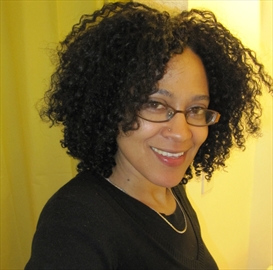Focus on EQAO testing very 19th century
Emphasis on passing the grade pushes aside wonder and curiosity
By Beatrice Ekwa Ekoko
It is as true now as it was then that no matter what tests show, very little of what is taught in school is learned, very little of what is learned is remembered, and very little of what is remembered is used. The things we learn, remember, and use are the things we seek out or meet in the daily, serious, nonschool parts of our lives.
— John Holt, How Children Fail
Although one can applaud the work "lower income" school communities like Adelaide Hoodless are doing to achieve steadily heightened EQAO test scores, one cannot help but wonder if these efforts would be better applied to independent learning and thinking.
Frankly, children, teachers and parents are focusing on the wrong thing: While the children of the elite are learning to debate, analyze and research, while they are working independently and pursuing project-based learning that enhances their learning (a recent example is the Cambridge, Mass., NuVu program, where there are no courses, no subjects, no classrooms, no one-hour schedules, no grades), less-privileged kids are spending invaluable time working hard to pass a high-pressure, redundant test.
Huffington Post recently showcased publicly funded U.S. schools that offer fresh approaches to educating — anything from more independence, experience, learning outdoors, to learning in a LGBTQ positive environment and much more.
But in Ontario, we keep throwing dollars away on testing and administration. We are stressing students, parents and teachers alike and detracting from what should be enjoyable learning environments by creating a false belief that learning has to be difficult, dull, tedious.
Thankfully, many are questioning the value of EQAO testing (established in 1996 to help determine the effectiveness of Ontario's education system).
Education is not about being an empty vessel to fill: rather, it's about exploration and experience. What's more, learning happens everywhere, all the time: it is not confined within four walls of an institution, between the hours of 9 and 3. Children need to be exposed to the life of the broader community. What does a librarian do? What sort of work is involved in lab research? Can we see how a plumber fixes a toilet? Why don't more people vote? Learning is hollow if not based on curiosity.
Kids require smaller groups for optimum learning, including many hands-on opportunities. Children (no matter their age) should be given the chance to contribute toward and collaborate on finding solutions to real-world problems (such as racism, oppression, health of the environment, disease, etc).
But rather than nurturing wonder and curiosity, we are stomping them out. Far from developing qualities of independent thinking, curiosity and creativity, the way we educate young people actually undermines these qualities; and halts the potential of young people to be their very best.
Play! Remember that word? We have forgotten that ingenuity is a result of imagination and playfulness, and for kids it is imperative that they have time to do so.
This is the age of technology and technology has changed everything, forever. John Seely Brown and Douglas Thomas speak of the world being "in flux," and what learning for a world of constant change requires:
"Although learning about and learning to be worked well in a relatively stable world, in a world of constant flux, we need to embrace a theory of learning to become. Where most theories of learning see becoming as a transitional state toward becoming something, we want to suggest that the 21{+s} t century requires us to think of learning as a practice of becoming over and over again."
We need to be nurturing, flexible, creative and open-minded because the jobs public schools prepare kids for today will have all but vanished by the time they grow up.
Yes, it's the 21{+s} t century, but Ontario is still educating young people based on the 19th century "factory-schooling" model; one size fits all. We barely even take into account mental health, sleep, play, creativity, healthy relationships — all factors in education that are undervalued in our emphasis on passing the grade.
Meanwhile, there is an openness to educational resources from elementary to university level (think Khan Academy, MIT open Courseware). Learning opportunities abound, be it online or right in the heart of our communities at the museum, the market, the college and university, the library, the neighbour.
Given this worldwide movement toward sharing and communities of collaboration, there is no good reason why Ontario remains sutured to a Dark Ages attitude toward educating.
We can do better than this.
Beatrice Ekwa Ekoko is a freelance writer and blogger at Natural Born Learners. She has recently published a book on autonomy in education. She lives in Hamilton with her husband and three children, who were all unschooled for a time.
Follow her at facebook.com/RadioFreeSchool or twitter.com/RadioFreeSchool

No comments:
Post a Comment